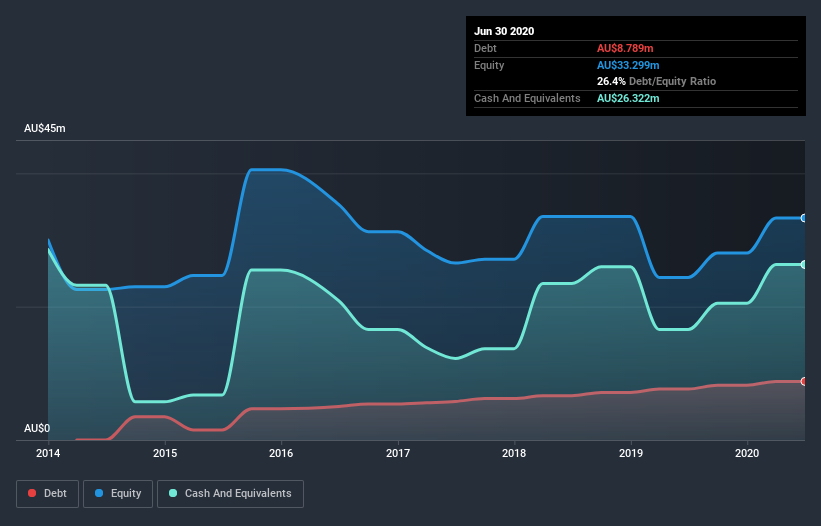Immutep (ASX:IMM) May Not Be Profitable But It Seems To Be Managing Its Debt Just Fine, Anyway
Howard Marks put it nicely when he said that, rather than worrying about share price volatility, 'The possibility of permanent loss is the risk I worry about... and every practical investor I know worries about.' When we think about how risky a company is, we always like to look at its use of debt, since debt overload can lead to ruin. We note that Immutep Limited (ASX:IMM) does have debt on its balance sheet. But should shareholders be worried about its use of debt?
Why Does Debt Bring Risk?
Debt is a tool to help businesses grow, but if a business is incapable of paying off its lenders, then it exists at their mercy. Ultimately, if the company can't fulfill its legal obligations to repay debt, shareholders could walk away with nothing. However, a more common (but still painful) scenario is that it has to raise new equity capital at a low price, thus permanently diluting shareholders. Of course, plenty of companies use debt to fund growth, without any negative consequences. The first thing to do when considering how much debt a business uses is to look at its cash and debt together.
See our latest analysis for Immutep
How Much Debt Does Immutep Carry?
The image below, which you can click on for greater detail, shows that at June 2020 Immutep had debt of AU$8.79m, up from AU$7.64m in one year. But on the other hand it also has AU$26.3m in cash, leading to a AU$17.5m net cash position.
A Look At Immutep's Liabilities
According to the last reported balance sheet, Immutep had liabilities of AU$3.36m due within 12 months, and liabilities of AU$9.93m due beyond 12 months. Offsetting these obligations, it had cash of AU$26.3m as well as receivables valued at AU$3.39m due within 12 months. So it can boast AU$16.4m more liquid assets than total liabilities.
This surplus suggests that Immutep has a conservative balance sheet, and could probably eliminate its debt without much difficulty. Succinctly put, Immutep boasts net cash, so it's fair to say it does not have a heavy debt load! When analysing debt levels, the balance sheet is the obvious place to start. But ultimately the future profitability of the business will decide if Immutep can strengthen its balance sheet over time. So if you want to see what the professionals think, you might find this free report on analyst profit forecasts to be interesting.
In the last year Immutep wasn't profitable at an EBIT level, but managed to grow its revenue by 142%, to AU$14m. So its pretty obvious shareholders are hoping for more growth!
So How Risky Is Immutep?
Statistically speaking companies that lose money are riskier than those that make money. And in the last year Immutep had an earnings before interest and tax (EBIT) loss, truth be told. And over the same period it saw negative free cash outflow of AU$11m and booked a AU$13m accounting loss. But at least it has AU$17.5m on the balance sheet to spend on growth, near-term. The good news for shareholders is that Immutep has dazzling revenue growth, so there's a very good chance it can boost its free cash flow in the years to come. High growth pre-profit companies may well be risky, but they can also offer great rewards. There's no doubt that we learn most about debt from the balance sheet. But ultimately, every company can contain risks that exist outside of the balance sheet. Like risks, for instance. Every company has them, and we've spotted 3 warning signs for Immutep (of which 1 is concerning!) you should know about.
When all is said and done, sometimes its easier to focus on companies that don't even need debt. Readers can access a list of growth stocks with zero net debt 100% free, right now.
This article by Simply Wall St is general in nature. It does not constitute a recommendation to buy or sell any stock, and does not take account of your objectives, or your financial situation. We aim to bring you long-term focused analysis driven by fundamental data. Note that our analysis may not factor in the latest price-sensitive company announcements or qualitative material. Simply Wall St has no position in any stocks mentioned.
Have feedback on this article? Concerned about the content? Get in touch with us directly. Alternatively, email editorial-team@simplywallst.com.

 Yahoo Finance
Yahoo Finance 
